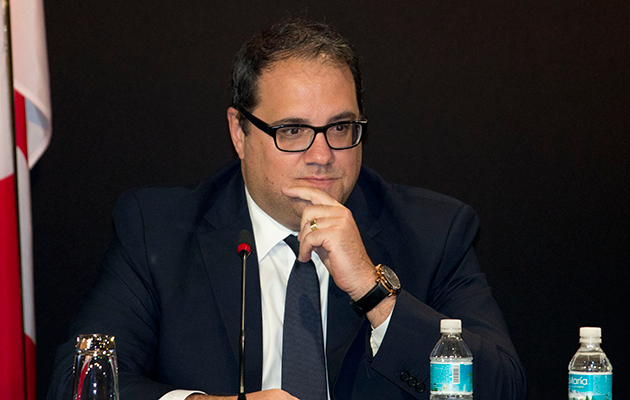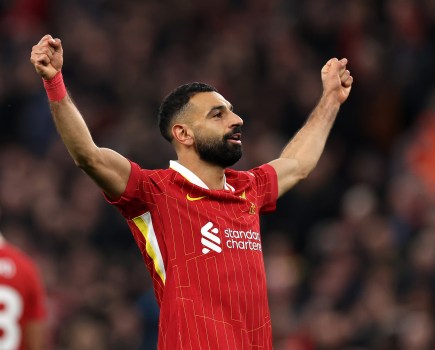The Caribbean Football Union elects a new president in Miami on Saturday (July 23) and whoever wins an increasingly bitter election takes on a body in ‘dire financial straits.’
That is how CONCACAF described the CFU’s affairs after a financial audit obtained by World Soccer, which shows liabilities of more than U$1 million.
The audit was carried out after the CFU told CONCACAF in December 2015 and January 2016 that it was unable to make what the confederation describes as ‘timely repayment’ of a $230,000 loan.
CONCACAF responded with the audit, which unearthed that monthly payments of $45,000 to support the CFU’s administrative and overhead expenses had been made into a different account set up in Antigua & Barbuda on November 10 2015.
According to more documentation seen by World Soccer, CONCACAF suspended the monthly CFU subvention – or grant – and began paying the union’s staff directly.
On March 10 2016, CONCACAF acting general secretary Ted Howard wrote to the CFU’s Antiguan president Gordon Derrick insisting any documentation relating to grants must be sent by May 2015 to New York law firm, Sidley Austin.
Howard specifically insisted documentation relating to CONCACAF grants was not to be destroyed and threatened unspecified ‘sanctions’ for non-compliance.
On May 31 2016, Derrick and CFU general secretary Neil Cochrane met with CONCACAF representatives in Miami but had only provided ‘some of the documentation’ according to a letter dated June 14 2016.
In the second CONCACAF letter, also obtained by World Soccer, Howard described the CFU’s current financial situation as ‘grave’ after the confederation produced a financial statement review, which posed a number of serious questions.
CONCACAF asked the CFU to identify ‘miscellaneous payables’ of $247,514 and queried unidentified ‘bonus payments’.
Details of annual events-related expenses of $934,044 were also requested by CONCACAF, which wanted details on expenses of $317,500 on the Club Championship, $295,424 of Men’s Caribbean Cup, and $250,000 of television rights payments.
In this review dated June 3, CONCACAF asked for details on the ‘timing of the $1.2m of Deferred Liability’, for audited financial statements for the last two fiscal years and details of an ‘un-planned’ cost of $750,000 for a CFU women’s tournament.
‘CONCACAF is certain that just restoring the historical practices of the monthly subvention (grant) won’t resolve the root causes of the problem,’ wrote Howard on June 10, when he described the liabilities as of an ‘urgent and alarming nature’.
On June 28, CFU vice president Cheney Joseph also sent an email to Cochrane and Derrick, which has also been obtained by World Soccer, saying: “It has been brought to my attention that the CFU is facing Tax Liabilities issues in Jamaica and that the CFU is indebted to the government of Jamaica some $80,000 on taxes. If there is any truth in this matter, I wish to have some clarity on this.”
David John-Williams, president of the Trinidad & Tobago Football Association, who is vying with Derrick for the CFU presidency, said the audit showed “poor financial management.”
He adds: “The key is to restore confidence and transparency so as to bring back sponsors, secure a television contract for all our competitions, manage the new grant that FIFA will be giving to the Union in a proper manner and most of all plug the leakage of funds.
“One example I will give. FIFA purchased a building for a CFU Headquarters in Jamaica for over $500,000 some three years ago but we are still paying thousands of dollars in rent annually.”

disgraced former CONCACAF president Jeffrey Webb, who faces racketeering charges in the US.
The CFU has previously defended the opening of a new bank account in the name of ‘Caribbean Football Union, Inc’. The union said this was because the previous account was held in the Cayman Islands, home to disgraced former CONCACAF president Jeffrey Webb, who faces racketeering charges in the US.
Derrick did not respond to World Soccer’s requests for a comment but in a recent article for Play The Game accused CONCACAF of trying to dilute the CFU’s power.
In May 2016, CONCACAF elected the Canadian Victor Montagliani as its third president in a year but Derrick was unable to run after falling foul of a new ethics check only brought in four months earlier.
Derrick was ruled out by FIFA’s ethics committee after being censured for his role in the 2011 Bin Hamman bribery scandal and a notorious Antiguan FIFA Goal project, which has swallowed up $1.3 million of FIFA money since 2000 without ever being built.
The incumbent CFU president is appealing against this ruling to the Court of Arbitration for Sport.
Derrick pointed out that the Jamaican Horace Burrell was also banned over the Bin Hamman saga but after his suspension is now a CONCACAF vice-president and on FIFA’s Olympic football committee.
CONCACAF certainly appears to be making moves to restrict the CFU’s influence with three new seats on its executive committee for independents. As a result, despite the Caribbean providing 31 of CONCACAF’s 41 members, the region’s only representatives on the CONCACAF Council are Burrell and the Turks & Caicos president Sonia Bien-Aime.
CONCACAF did offer to fund accommodation and travel costs for delegates from all CFU members to a meeting in Trinidad to discuss a proposed Caribbean Professional Football League, but this only added to the acrimony over the CFU presidential election.
The meeting was called by John-Williams and staged before the CFU presidential nomination deadline. This led to suggestions he is CONCACAF’s preferred candidate, although John-Williams insisting he called the meeting as a member of the CPFL taskforce.
The other candidate is Hillaren Frederick from the US Virgin Islands, who earlier this year ruled out David Nakhid – the Caribbean’s only candidate – from the FIFA presidential election by nominating the Trinidadian and Jerome Champagne.
Hillaren is already on the CFU Exco. In addition to trying to retain this role, he is seeking the presidency and the role of a vice president.
Hillaren did send his manifesto to World Soccer, which called for annual payments of $150,000 from CONCACAF to all members and $1 million to the three regional federations.
Hillaren’s manifesto called for annual payments of $150,000 from CONCACAF to all members and $1 million to the three regional federations.
He told World Soccer: “Football has governance issues. Leaders do not have proper governance and of there is not proper governance, the leaders will take all the power.
“With the new governing structure, we want to be part of that and shoiw we have changed.”
CONCACAF did not respond for requests for a comment on the audit but CFU general secretary Neil Cochrane insisted the confederation’s audit had no bearing on the election.
“All of the questions posed concern confidential information regarding the business of the Caribbean Football Union and not the elections, and I am sure it will come as no surprise that my response is it would be highly improper for me to attempt to respond to any of your questions,” wrote Cochrane in an email.
LINKS
Fifa accused of promoting new Caribbean Godfather
Caribbean football at a crossroads as political elite risk creating another Jack Warner-type figure







